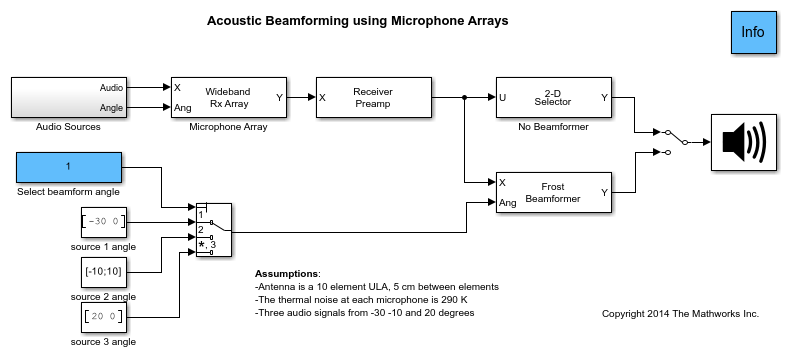
STitle = sprintf("Antenna Array = %d by %d",1,NoOfTxAntenna) Txarray = phased.ULA('NumElements',NoOfTxAntenna,'ElementSpacing',lambda/2,'Element',antennaElement) It is derived as explained here.ĪntennaElement = phased.CrossedDipoleAntennaElement The steering vector in this example (marked red) came from a CSI codebook for NR. Pattern(txarray,fc.įollowings are the examples that we define our own steering vector. Xlim() ylim() įollowing three example shows the beam pattern of the array antenna with 4 elements depending on different steering angles.įollowing three example shows the beam pattern of the array antenna with 8 elements depending on different steering angles.įollowing three example shows how the shape of the beam changes as the number of antenna elements in an array antenna gets larger. Txbeam = abs(wt*steervec(txmipos,txbeam_ang)) Txarraystv = phased.SteeringVector('SensorArray',txarray,'PropagationSpeed',c) Txmipos = getElementPosition(txarray)/lambda Txarray = phased.ULA('NumElements',NoOfTxAntenna,'ElementSpacing',lambda/2) Txarray = phased.ULA('NumElements',4,'ElementSpacing',lambda/2) This is the type of array antenna that are used for MIMO (e.g, LTE MIMO). Stv = phased.ULA is the Object that is for design and simulating the set of antenna placed along a line. Stv = phased.SteeringVector('SensorArray',txarray)

Xlim() ylim() įollowing examples shows the pattern of an array antenna with different steering angles.įollowing examples shows how the shape of an array antenna changes as the number of elements increases.


ULA is the Object that is for design and simulating the set of antenna placed along a line.


 0 kommentar(er)
0 kommentar(er)
